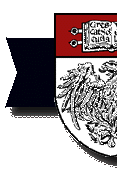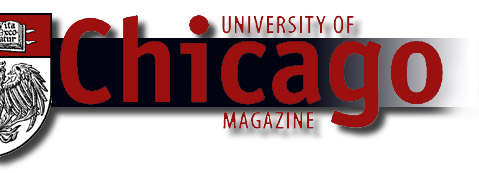|

A
great teacher talks about great books--children's books, that is
Winner of a 1998 Norman Maclean Faculty Award, professor emerita
Zena Sutherland, AB’37, AM’68, is a legend in children’s literature.
As editor of the Bulletin of the Center for Children’s Books for
27 years, a contributing editor to the Saturday Review, and the
Chicago Tribune’s children’s book editor, she has reviewed more
than 20,000 children’s books. A faculty member in the now-closed
Graduate Library School (1972–1986), Sutherland also wrote the fourth
through ninth editions of the textbook Children and Books. In 1983,
two former students used the royalties from a Festschrift in her
honor to establish the Zena Sutherland Lecture Series, and two years
ago, the Lab Schools established the Zena Sutherland Prizes in Children’s
Literature, awarded by children.
These days, she’s at work on the tenth edition of Children and
Books and about to start a book on how Newbery Medal–winning books
reflect the beliefs of the era in which they’re written. A 1998
Newbery Medal judge, Sutherland also serves on the United States
Board of Books for Young People and continues to write magazine
articles and book chapters. Recent trips abroad have taken her to
South Africa and Eastern Europe to visit schools, libraries, colleges,
and colleagues. The Magazine asked her about children, literature,
and teaching—then and now.
How has children’s literature changed during your career?
Children’s literature was full of taboos, most of which existed
because people believed with sincerity that children ought to be
protected. There shouldn’t be anything to make them unhappy, every
book should have hope in it, there should be no denigration of the
parent image, no discussion of unpleasant things. Unpleasant things
included child abuse, homelessness, the fact that a lot of children
needed and/or were getting therapy. Today, one can find fiction
and nonfiction about all these subjects that were then taboo. So
there are today good books and bad books on almost every subject
you can think of.
Another change has been the depiction of active females, young
and old. When I started, almost all action books were boy’s books.
There wasn’t a book that I can re-member about a girl participating
in a sport. Even Nancy Drew, with her so-called prowess as a detective,
almost always had to go to her boyfriend or her father to get help
at some point. That has changed radically, I’m happy to say.
Another big change is that when I started, there was a very narrow
view of other countries. Quote—book on France: “The French are a
gay people, fond of light wines and dancing.” That’s a great big
fat generalization if I ever heard one. I’ve known some very depressed
French people. There was a tendency to mention what other people—especially
in underdeveloped countries, especially in Asian countries—wore
or ate as exotic or strange.
How have changes in the publishing world affected the quality
of children’s literature?
The big houses used to take a great deal of pride in the fact that
they did good books, and they were very willing to take chances
on books they knew would not make a lot of money. Poetry books,
for example, seldom make a lot of money except for Shel Silverstein
and one or two others.
What started as a trend—the merging of publishing houses—has been
almost swallowed in an avalanche of purchases of publishing houses
or combinations of publishing houses by somebody who has made money
at something else. More and more, editors and authors say that because
of somebody in accounting they no longer have the power of decision
they used to have. It’s having an effect on new authors and how
much opportunity they have.
Today there is so much schlock on the market. If you look at the
reports in Publisher’s Weekly of the best-sellers in children’s
books, you will find that they’re often paperback fright books or
books in cartoon style. I don’t mean these don’t have any place
at all, but out of a list of recent 20 top sellers, 16 are books
I wouldn’t buy for a library.
We’re seeing the books of poor quality because they are popular
books that make more money. It’s just like some of the popular trashy
paperbacks written for adults.
How can parents encourage their children to read—and to read
good books?
One reason my children were avid readers is that they saw me reading
a lot and neglecting my housework in order to read. It was obviously
something desirable. I didn’t preach to them about it. We made trips
to the library. If it was a nice day, I would pack a lunch and we
would stop on the Midway afterward and everybody could eat sandwiches,
no conversation needed, and read. One book.
You don’t have to stop reading aloud to your children because they
can read to themselves. It’s a special sharing when you take turns
reading aloud. Children may give you that good old line, “Oh, Mom,”
when you want to read to them, meaning “I can read it myself.” But
if they’ve enjoyed being read aloud to and reading aloud, they usually
continue to enjoy it until swept away by teenage passion or the
need to learn to drive a car or something really important.
Through reading the right kind of books, children can learn not
just the skills of reading, but the joys of reading. If they can
learn to appreciate what is good about a book, it will make a big
difference in what they read and how they read it the rest of their
lives.
There’s always been a big difference of opinion in the library
profession about buying books just because the children want them,
or buying books that are good quality. There are people who say,
“If they want junk, they can buy it themselves. My library is going
to have good books.” Other people say, “I want something that’ll
bring them into the library. Any reading is better than nothing.”
My feeling is that you can’t generalize.
Librarians know the books that excite children. You can say to
a child who is in a reading rut, “If you like to read about fantasies
in which animals talk, here’s a wonderful book called Rabbit Hill.”
Or Wind in the Willows. There are a lot of good books that you can
recommend. That’s true of almost everything. There is a lot of junky
sports fiction, but there’s also some very, very good stuff. The
same thing is true of detective stories. You have to know about
it.
How did your career in book reviewing lead to teaching at
the University?
I was pushed into it. The dean at the Library School asked me if
I would teach a course in children’s literature. At that point I
had a full-time job with the Bulletin and three children at home
and an eight-bedroom house to take care of. I said I couldn’t do
it, but to ask me again. And so a year later, he asked me again.
I said yes.
I can’t believe there is anybody who isn’t nervous the first time
they walk into a classroom. I had prepared enough for a six-hour
lecture. I can’t remember what I talked about; I can’t remember
how the class reacted; I can only remember when the last person
walked out, I thought I was never going to move again. I was just
beat. I learned eventually that one of the best things about teaching
was having your students so stirred up about something that they
disagreed with you. That was wonderful.
As time went on I felt as if I were creating a whole new world
of relationships, because the students became so important to me.
I was doing a little psychiatric counseling on the side. I mean,
they’d come about all sorts of things. I knew that some of them
were going to be my friends for as long as I live, and that has
been true.
Of what—in your career—are you most proud?
What I am proudest of is what my students have done, the jobs they
have, the wonderful things they do in their work. I had several
phone calls on Mother’s Day from students of whom I am not the mother.
I guess it’s the same way you feel about children. My children I
have to love and care for. The students just came to me out of the
blue, and there they are. Wonderful.
|



